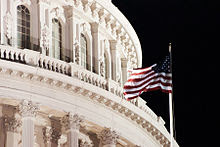Observing The US Presidential Debate – OpEd
By Arab News
By Alsir Sidahmed
The sticker on one of the cars in Washington DC captured the typical mid-term negative feelings toward the Obama presidency: “We’ll hold to our money, You keep the change.”
Two years later and on the eve of the first presidential debate between the democratic candidate Barack Obama and his Republican counterpart Mitt Romney that satirical playing with words belittling the change Obama promised his electorates in his first term still holds.

The result so far is a kind of tight race, though Obama seems to be doing better, not because he managed to sway more people to his side, but mainly because Romney’s ratings keep dropping and the gap is widening to Obama’s favor because of that factor in particular.
Presidential debates are mainly about perception and they tend usually to emphasize what people have in mind than make remarkable change in any established position according to a Gallup poll. The exception to that goes back more than half a century to the 1960 debate between Richard Nixon and John Kennedy, which resulted into more electorates moving to the Kennedy camp than before the debate.
So the current situation favors Obama campaign that managed to exploit mistakes of Romney, who hardly opens his mouth without committing a gaffe to the extent that criticism about his performance was made even by the Republicans. The major blow his campaign undertook was the secret tape made public about the 47 percent of population who depend on the government handouts and that regardless of what Romney could do, he will never win them back. That looks like conceding of defeat. It is hard to imagine a candidate winning at a time he projects himself as caring only for half of the population.
The perception about Romney is that of a rich guy, unable to connect with other people since he does not pay taxes that are equal in terms of percentage to what ordinary people pay. On the other hand the impression about Obama is that he is willing to make every move to ensure getting elected for the second term. He is seen as someone who has managed to paint himself as the president destined to clear the legacy of his predecessor George Bush by boosting the deteriorating economy, calling back troops from unwinnable wars sent under the pretext of fighting terrorism.
Though unemployment continues at more than 8 percent, which could undermine the whole Obama campaign as it had happened with George Bush Sr., Obama managed to send a strong message that the country is on the right track to get out of the economic mess he inherited from the previous Republican administration and that electing Romney means going to where the country was four years ago.
However, keeping an eye on this presidential debate by outsiders reflects more on the influence the United States continues to exert on world affairs. After all, none other than American voters have the right to the ballot, though American influence continues to impact all corners of the globe not only politically, but economically and socially too. And that is how the US presidential election was and continues to be an international concern.
Another aspect of interest is whether the American experience could be copied in the Middle East. With the wave of change in the region and the growing importance of the ballot box in determining future political developments in some countries, presidential debates were tested in Egypt, though did not register much of a success. Partly that could be attributed to the poor performance professionally speaking on how to manage such debates.
But it goes all the way back to a lack of established tradition of running genuine multiparty elections, the way the media operates as well as research institutions, think tanks and so on. Unless that kind of environment is established copying presidential debates in this or that country will be mere cosmetic replication more than a serious attempt to add value to the political development process in the region.
